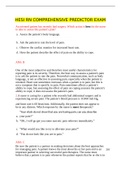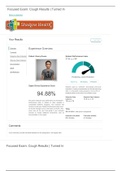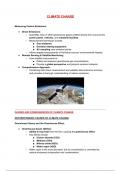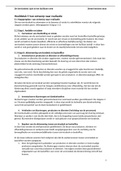Samenvatting
Volledige samenvatting Ethics, Responsibility and Sustainability KULeuven MBA ()
- Vak
- Instelling
Volledige samenvatting van Ethics, Responsibility and Sustainability gegeven door K. De Vooght. De samenvatting bevat alle slides uit de les aangevuld met eigen notities. Opgelet: is dus geen samenvatting van het boek!!!
[Meer zien]









